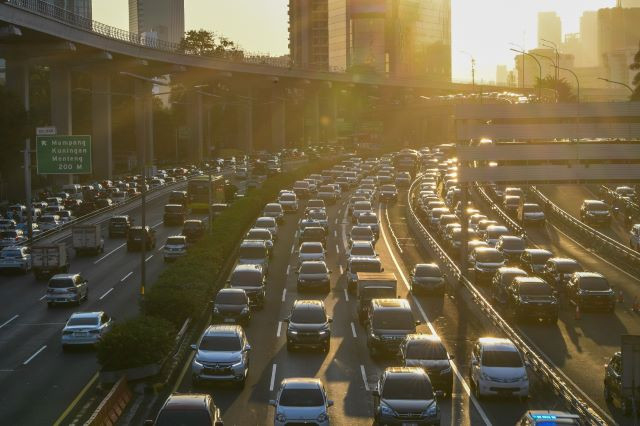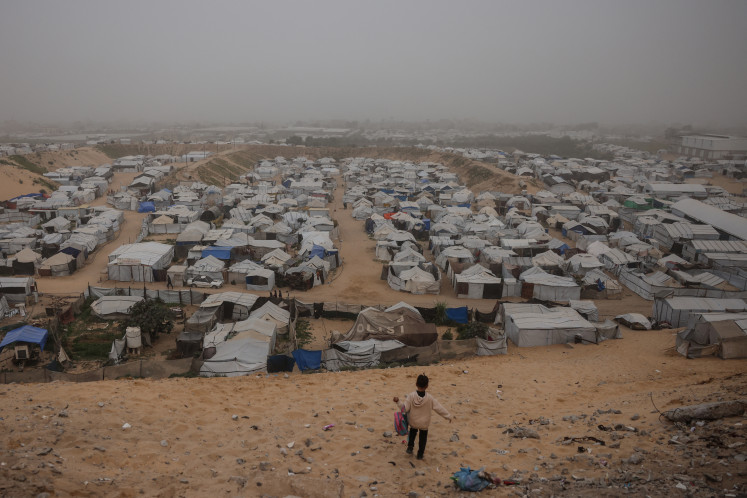Popular Reads
Top Results
Can't find what you're looking for?
View all search resultsPopular Reads
Top Results
Can't find what you're looking for?
View all search resultsAsia, Africa bear brunt of pollution health burden: research
Around three quarters of the adverse health effects of air pollution is concentrated in just six countries - Bangladesh, India, Pakistan, China, Nigeria and Indonesia, the University of Chicago's Energy Policy Institute (EPIC) said in its annual Air Quality Life Index (AQLI) report.
Change text size
Gift Premium Articles
to Anyone
D
espite improvements in China, air pollution across the globe continues to pose the greatest external risk to human health, with countries in Asia and Africa suffering most of the impact, new research showed on Tuesday.
Around three quarters of the adverse health effects of air pollution is concentrated in just six countries - Bangladesh, India, Pakistan, China, Nigeria and Indonesia, the University of Chicago's Energy Policy Institute (EPIC) said in its annual Air Quality Life Index (AQLI) report.
If hazardous airborne particles known as PM2.5 were brought down to levels recommended by the World Health Organization (WHO), average life expectancy would rise by 2.3 years worldwide, saving a combined 17.8 billion life years, the report estimated.
While average world pollution levels have fallen slightly over the past decade, almost all of the improvement has been driven by China, where a 10-year "war on pollution" has seen PM2.5 fall by more than 40 percent since 2013.
"While China has had remarkable success in its war against air pollution, the trend in other parts of the world is going in the opposite direction," said Christa Hasenkopf, AQLI's director.
PM2.5 in South Asia has risen by nearly 10 percent since 2013, she said, cutting average life expectancy in the region by around five years. Growing energy consumption in central and western Africa was also turning particulate pollution into a growing health threat on par with HIV/AIDS and malaria.
Virtually all of Southeast Asia is also now considered to have "unsafe levels of pollution", with average life expectancy cut by 2-3 years.
China's average PM2.5 concentrations stood at 29 micrograms per cubic metre in 2022, but it still remains significantly higher than the WHO recommendation of 5 micrograms.
While improvements in China have helped raise average life expectancy by 2.2 years since 2013, it could rise by another 2.5 years if the country were to meet the WHO standard.
"We haven't turned the corner on air pollution yet, though China's example shows us that the issue is a tractable one," Hasenkopf said.










